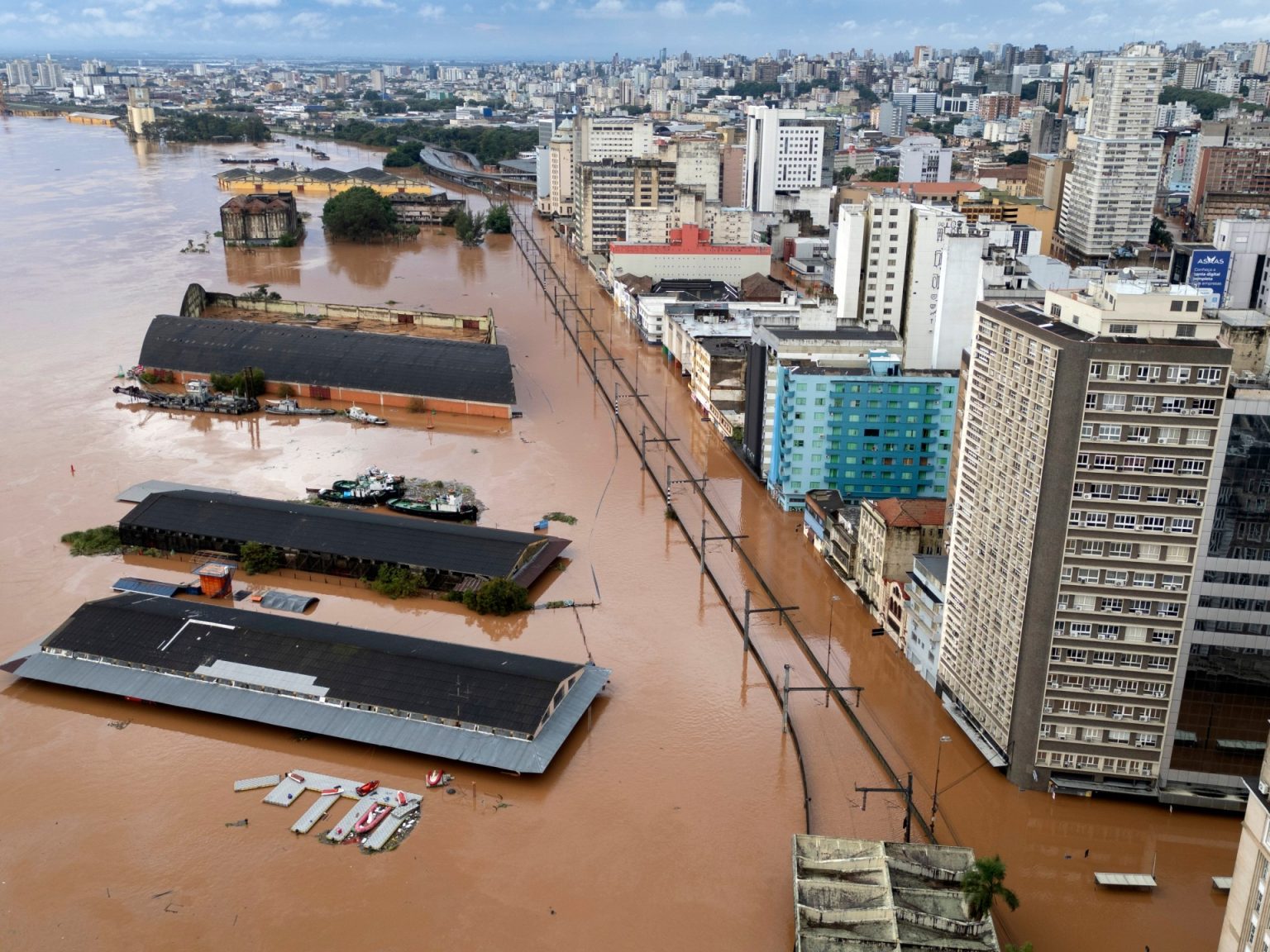Southern Brazil is facing a severe crisis as heavy rains continue to cause extensive flooding in the state of Rio Grande do Sul. The death toll has reached at least 78 people, with more than 115,000 individuals displaced from their homes. Rescue efforts are underway, with volunteers using boats, jet skis, and even swimming to save people trapped in the floodwaters.
In Porto Alegre, capital of Rio Grande do Sul, one man and his friends rescued around 50 people using jet skis. However, there are still 105 people reported missing, indicating that the death toll could rise further. The state civil defence authority is also investigating whether four more deaths are related to the storms, highlighting the seriousness of the situation. Flooding has impacted over two-thirds of the state’s cities, displacing hundreds of thousands of residents.
The heavy rains have caused damage to roads, bridges, and infrastructure in several cities, with landslides and a partial collapse of a dam at a hydroelectric power plant. More than 400,000 people were without power and nearly a third of the state’s population was without water, adding to the challenges faced by those affected by the floods. The Guaiba Lake in Porto Alegre has breached its banks, leading to the highest water level on record and causing the city’s international airport to suspend all flights.
Authorities in Rio Grande do Sul are facing a daunting task as they work to address the aftermath of the flooding and provide assistance to those in need. The scale of the disaster is significant, with widespread devastation and massive displacement of residents. Emergency responders and volunteers are working tirelessly to rescue trapped individuals and provide relief to those affected by the floods. The situation remains precarious as the rains continue, and efforts to locate missing individuals and assess the full extent of the damage are ongoing.
The impact of the flooding in southern Brazil extends beyond the immediate loss of life and displacement of residents. The destruction of infrastructure, including roads, bridges, and power lines, has hampered rescue and relief efforts, complicating the response to the crisis. The long-term consequences of the flooding, including potential health risks, economic damage, and environmental impact, are yet to be fully realized. The resilience and solidarity of the affected communities, along with the support of volunteers and emergency responders, will be crucial in the recovery and rebuilding process.
As the death toll rises and the extent of the damage becomes clearer, the people of Rio Grande do Sul and southern Brazil are facing a monumental challenge in recovering from the devastating floods that have gripped the region. The priority now is to ensure the safety and well-being of those affected, provide essential services such as power and water, and begin the process of rebuilding shattered communities. The coming days and weeks will be critical as the region grapples with the aftermath of the disaster and works towards recovery and resilience in the face of future challenges.


